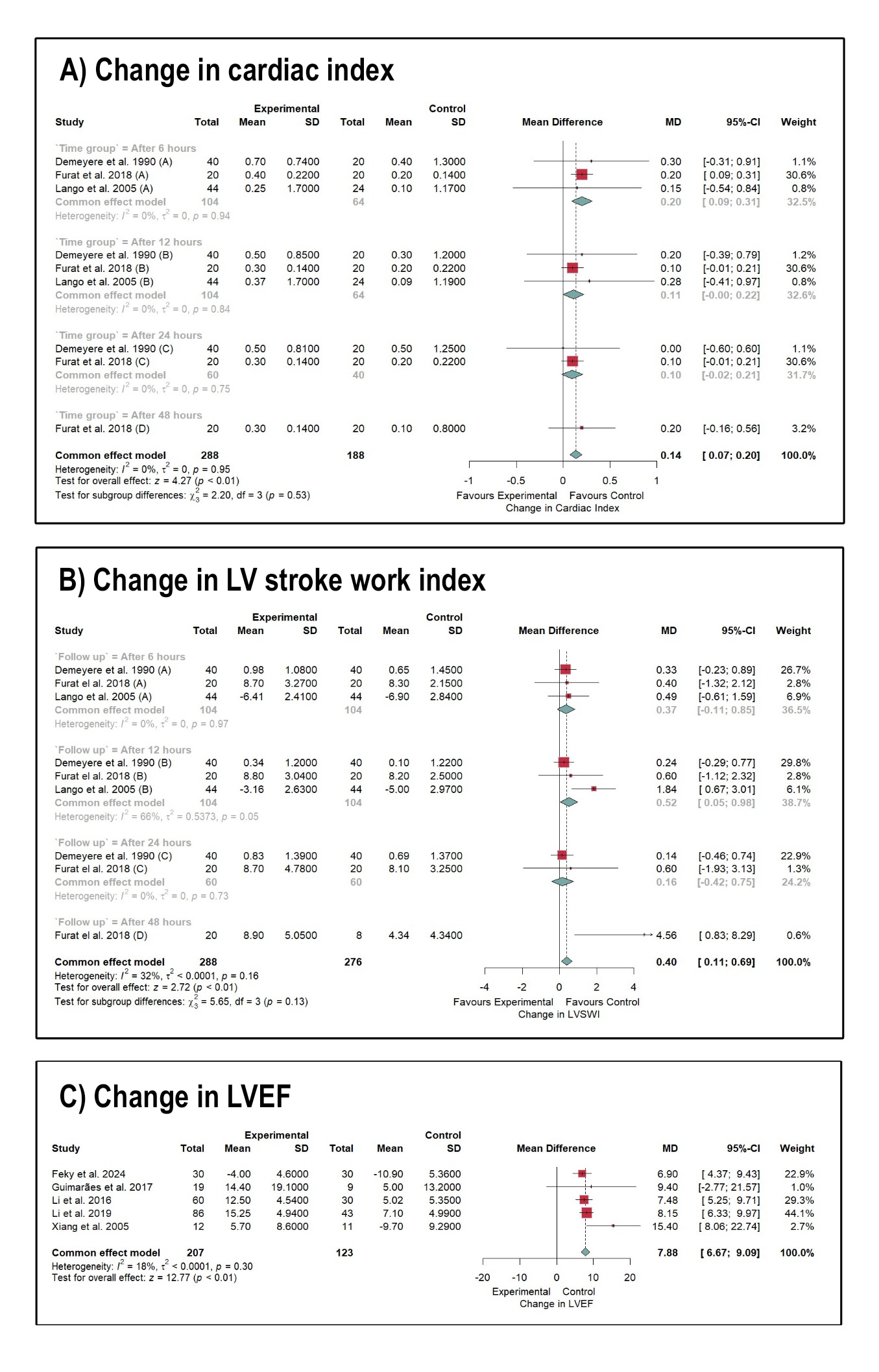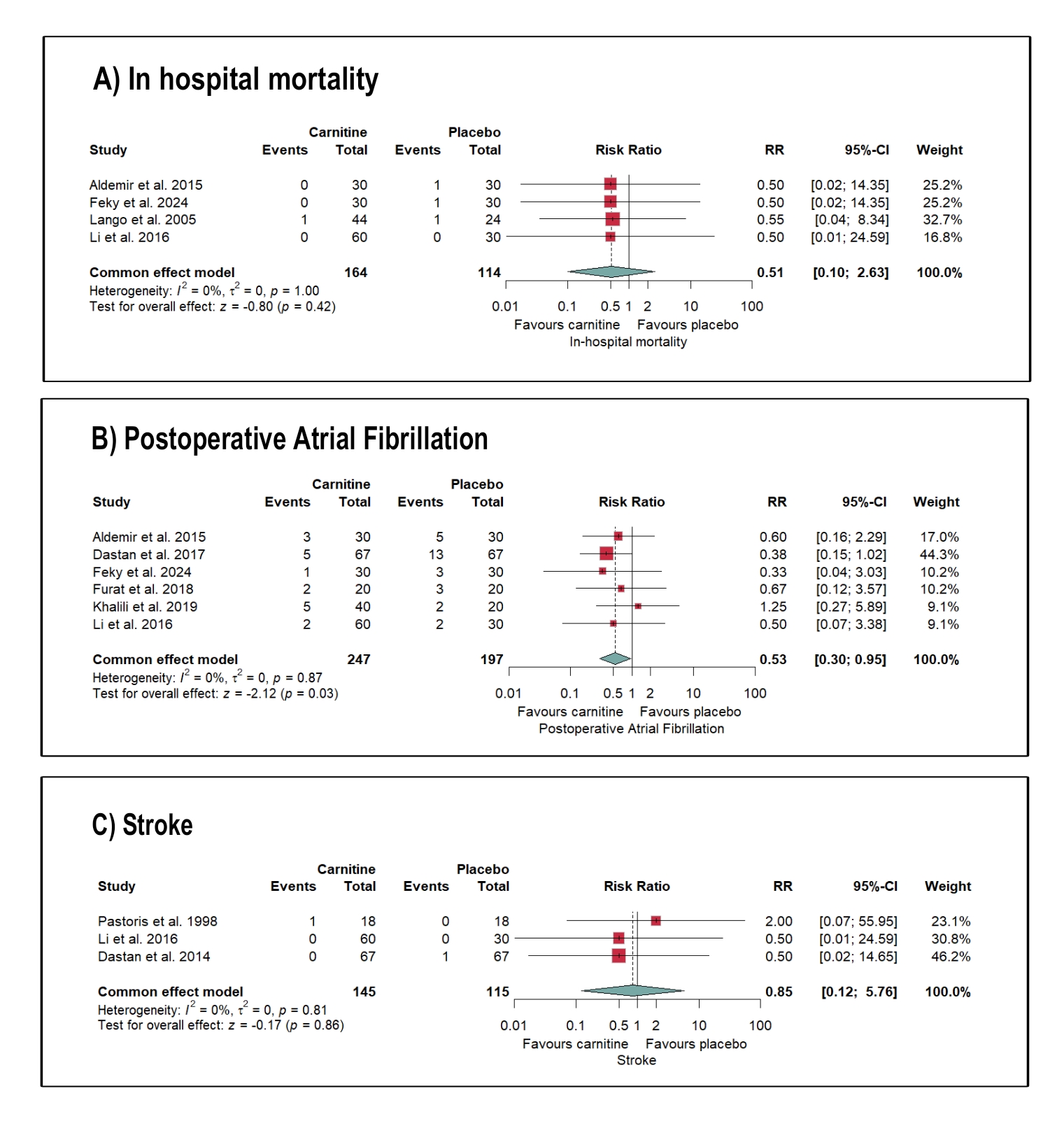Lots of interesting abstracts and cases were submitted for TCTAP 2025. Below are the accepted ones after a thorough review by our official reviewers. Don’t miss the opportunity to expand your knowledge and interact with authors as well as virtual participants by sharing your opinion in the comment section!
TCTAP A-090
L-Carnitine to Prevent Postoperative Complications After Cardiac Surgery: A Systematic Review and Meta-Analysis
By Laila Shalabi, Ahmed Ibrahim, Mohamed Adel Elsawy, Sofian Zreigh, Muhiddin Dervis, Mohamed Nasser Elshabrawi, Sohaila Mourad, Mohamed Abdelrazek Arafa, Mohamed Abuelazeem
Presenter
Laila Shalabi
Authors
Laila Shalabi1, Ahmed Ibrahim2, Mohamed Adel Elsawy3, Sofian Zreigh4, Muhiddin Dervis4, Mohamed Nasser Elshabrawi5, Sohaila Mourad2, Mohamed Abdelrazek Arafa3, Mohamed Abuelazeem6
Affiliation
Gharyan University, Libya1, Alexandria University, Egypt2, Al-Azhar University, Egypt3, Ankara Yildirim Beyazit University, Turkey4, Port Said University, Egypt5, Tanta University, Egypt6
View Study Report
TCTAP A-090
Pharmacotherapy (Heart Failure)
L-Carnitine to Prevent Postoperative Complications After Cardiac Surgery: A Systematic Review and Meta-Analysis
Laila Shalabi1, Ahmed Ibrahim2, Mohamed Adel Elsawy3, Sofian Zreigh4, Muhiddin Dervis4, Mohamed Nasser Elshabrawi5, Sohaila Mourad2, Mohamed Abdelrazek Arafa3, Mohamed Abuelazeem6
Gharyan University, Libya1, Alexandria University, Egypt2, Al-Azhar University, Egypt3, Ankara Yildirim Beyazit University, Turkey4, Port Said University, Egypt5, Tanta University, Egypt6
Background
Cardiac surgeries often lead to postoperative complications, impacting recovery and increasing morbidity and mortality. L-carnitine, an endogenous molecule crucial for fatty acid metabolism, has shown promise in reducing inflammation and improving cardiac and renal functions. This systematic review aims to assess L-carnitine’s effect on preventing postoperative complications across various cardiac surgeries, addressing gaps in current literature on its potential therapeutic benefits.
Methods
We systematically searched Web of Science, Cochrane, Embase, PubMed, and Scopus databases from inception to October 2024. Studies included randomized clinical trials (RCTs) involving patients undergoing cardiac surgery who received L-Carnitine supplementation pejoratively compared to placebo or standard care. Statistical analysis was performed using R version 4.3.2. Effect sizes were measured with relative risks (RR) for dichotomous outcomes and mean differences (MD) for continuous outcomes, while heterogeneity was evaluated using the I² statistic. Subgroup analyses were performed as needed, and a leave-one-out sensitivity analysis was conducted to assess the robustness of the results.
Results
In this meta-analysis, 13 RCTs with a total of 786 patients were included. Our analysis demonstrated that L-carnitine administration led to a statistically significant increase in cardiac index (MD, 0.14; 95% CI, 0.07–0.20; P < 0.01) and left ventricular stroke work index (LVSWI) (MD, 0.42; 95% CI, 0.06–0.78; P = 0.02), with no heterogeneity among studies. In addition, L-carnitine resulted in a significant improvement in left ventricular ejection fraction (LVEF) (MD, 7.88; 95% CI, 6.67–9.09; P < 0.01) with minimal heterogeneity (I² = 18%). We also found a significant reduction in the risk of postoperative atrial fibrillation (POAF) (RR, 0.53; 95% CI, 0.30–0.95; P = 0.03), though this finding was not robust across sensitivity analysis. In contrast, there was no significant reduction in in-hospital mortality (RR, 0.51; 95% CI, 0.10–2.63; P = 1.00) or stroke incidence (RR, 0.85; 95% CI, 0.12–5.76; P = 0.82). Furthermore, L-carnitine was associated with lower Troponin I level at various postoperative intervals, suggesting a potential cardioprotective effect, although the heterogeneity and differing postoperative follow-up times among studies precluded formal meta-analysis for this outcome.




Conclusion
In conclusion, preoperative administration of L-carnitine demonstrates meaningful short-term benefits in enhancing cardiac index, LVSWI, LVEF, and reducing the incidence of POAF following cardiac surgery. However, the existing studies are limited in scope making it challenging to draw robust conclusions. Future trials should aim for larger, more homogeneous patient populations and extended follow-up periods to thoroughly assess the clinical benefits of L-carnitine in cardiac surgery contexts.


